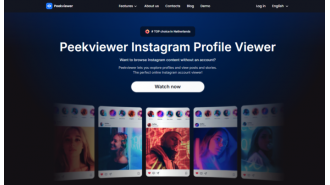Stalking victims often lack information, but that's changing now.
More measures will follow as this is just the beginning.

Imagine receiving messages from an unknown account and then stepping out into the world, constantly aware that any person you pass by could be the one behind those messages. No one should ever have to endure the relentless fear of being stalked. That feeling of dread every time you leave the house or check your phone, wondering if they're targeting you again. It's not something that can be brushed off, it's a violation that strips victims of their freedom and traps them in a never-ending cycle of anxiety every time they go out or log on to social media.
We've all experienced that sense of unease at the end of a night out if we think someone might be following us. But for those who have never experienced stalking, that's what it feels like all the time. Every day on the way to work, every evening on the way home, constantly knowing that your stalker is out there. But what exactly is stalking?
Stalking is a crime that occurs when someone repeatedly harasses or targets another person whom they have an obsession with. This behavior can leave the victim feeling scared and distressed. Stalking can happen both online and offline. It can take many forms, such as following someone, spying on them, stealing their identity, or even entering their home without permission. It's important to know that stalking and harassment are similar offenses, and the police can help regardless of whether you are unsure if you are a victim of stalking.
For victims of online stalking, the impact is just as severe. The constant stream of abusive or threatening messages, the knowledge that they know where you are and what they want to do to you, it's a never-ending nightmare. Imagine receiving those messages from an unknown account and then stepping out into the world, constantly aware that any person you pass by could be the one behind those messages. And the sad reality is that one of them probably is.
Nicola Thorp, a former Coronation Street actress, knows this feeling all too well. When the police finally arrested her stalker, she was told that his identity could not be revealed. She had to continue living in fear until she saw him in court. This is not right, and unfortunately, Nicola's case is not an isolated one. That's why she has been campaigning for victims to have the right to know the identity of their stalkers. And we promised her in our manifesto that we would deliver, and now we are doing just that.
That's how This Is Not Right was born. On November 25, 2024, Metro launched a year-long campaign to address the epidemic of violence against women. Throughout the year, we will be sharing stories that shed light on the sheer scale of this issue. With the help of our partners at Women's Aid, This Is Not Right aims to engage and empower our readers on the issue of violence against women.
Our new Right to Know guidance will empower the police to reveal the identity of an online stalker to their victims as early as possible. This will allow victims to regain a sense of control over their own lives. But our measures to tackle stalking don't stop there.
We are also reviewing all existing stalking legislation to ensure that it enables police officers to take action more quickly. We are publishing guidance, backed by law, to ensure that the police work closely with healthcare professionals, probation officers, and other local services to tackle stalkers and protect victims. We are also giving courts the power to impose protection orders on perpetrators after they have been convicted, even if no order was in place before. This will help prevent offenders from contacting their victims, even while in prison. And if there isn't enough evidence to convict a stalking suspect, the courts will still have the power to impose a protection order if they believe there is a risk to the victim.
But what can you do if you are being stalked? According to the Metropolitan Police, you should report it to your local law enforcement and keep all contact with your stalker to a minimum. It can also be helpful to keep a record of each incident, including any witnesses, a description of the person harassing you, and recordings of any phone calls. It's also important to secure your technology, as outlined in Refuge's guide. Seeking support from trusted friends, family, and colleagues or calling the National Stalking Helpline on 0808 802 0300 can also be helpful.
These measures are just the first step, and there will be more to come. But it's crucial that we start fighting back against the fear that grips so many lives. We need to send a message to the perpetrators that we will not stand for this, and we need to make victims of stalking feel protected, heard, and seen. This government is determined to make life safer for women and girls, and it starts with helping those who feel unsafe all the time. As Metro has said, enough is enough.
Do you have a story you'd like to share? We want to hear from you. You can email us at jess.email or share your views in the comments below. Let's work together to put an end to this epidemic of violence against women.










